5 Craziest Details from Blockbuster Trump Exposé By Ex-Apprentice Producer
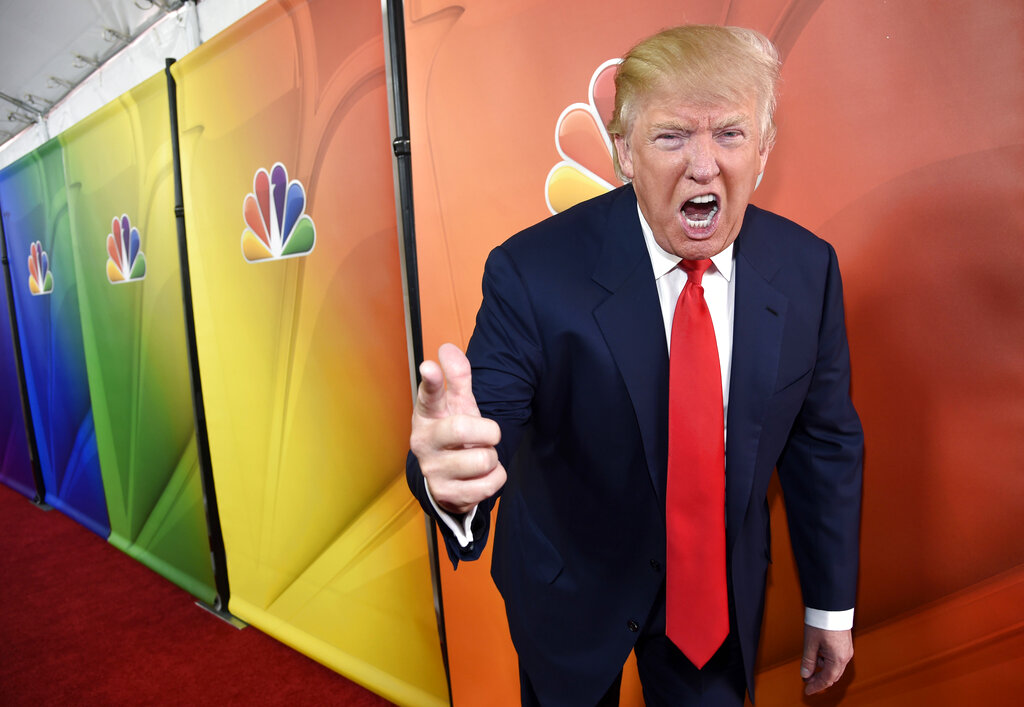
(Photo by Chris Pizzello/Invision/AP, File)
Bill Pruitt is an Emmy-nominated producer for The Apprentice. And since his 20-year NDA from that experience just expired, he did the predictable thing in today’s media landscape: He wrote a deep-dive exposé on former President Donald Trump.
“The Donald Trump I Saw on The Apprentice” is the title of the bombshell-laden exposé-cum-mea culpa. The subhead continues, “For 20 years, I couldn’t say what I watched the former president do on the set of the show that changed everything. Now I can.”
Pruitt frames the piece as exposing the behavior of a “con man,” which certainly appeals to Slate readers and anyone with an anti-Trump sentiment. But it’s a bit rich coming from a producer of a competitive reality show — a format entirely designed to air misleading artifice through staged conflict and editing that has little to no duty to convey the truth. I know this firsthand as a former director and producer of competitive reality television programming.
Nonetheless, Pruitt offers some keen and previously unknown details about the production of The Apprentice, how Trump himself behaved on set, and how the entire experience was remarkably influential, not just on Trump’s rehabilitation in the American zeitgeist but also on the nation’s future political landscape.
I encourage anyone to read the full piece, as it’s fascinating and fun. But following are a handful of details that stood out to me as among the most notable, or batshit crazy, depending on the reader’s perspective.
Trump’s Offices Were NOT Suitable for Prime Time.
Pruitt reveals that Trump’s offices were cramped and not “suitable” for cameras trying to convey the opulence of a self-proclaimed billionaire’s work environment:
Another show of confidence is the budget the series commands. It’s not as expensive as a scripted series, but for a reality show, the price is high. Never have I worked on a series with this level of funding, but the cost is justified. This needs to feel real.
New York City is the perfect—though expensive—backdrop. Trump’s actual offices are, however, less than telegenic. They are cramped, and a lot of the wood furniture is chipped or peeling. None of it is suitable to appear on camera. We need what grifters call the Big Store: a fake but authentic-looking establishment in which the con goes down. Trump Tower, at the time, is mostly condos and some offices situated in the high-rise. The mezzanine comprises vacant and overpriced retail space, all of it unfinished. Trump offers the space to the production—at a premium, naturally—and it is inside this location that we create our own “reception area” with doors leading to a fake, dimly lit, and appropriately ominous-feeling “boardroom.”
Readers surprised by this will also know that there are very few offices that are chic enough to be camera-ready in Hollywoood’s eyes, and those that are, are typically the first to go out of business for irresponsible spending. Nonetheless, the Trump Org’s offices were not very nice in 2004, according to the show’s producers.
Trump’s signature “You’re Fired!” line came after producers had to ASK for it.
Among the details surrounding Trump’s mythology, his signature phrase at the end of The Apprentice is nearly at the top of the list. However, Pruitt reveals that this line came only after producers and an NBC executive huddled in a control room, unhappy with how Trump initially ended the first show. Pruitt writes:
Trump summons the three men back into the boardroom for final judging. Trump grills one and says, “I will let you stay.” (Wow! we think. A benevolent leader.) When he turns his attention to the other man—the one he asked about genetics—it looks clear. He is doomed. So much so that the man stands when Trump tells him, “It seems unanimous.” Trump then offhandedly tells him to sit down, calling him “a wild card,” echoing Ross’ earlier observation of the boss, Trump.
After this comes an unwieldy moment when, at the behest of Bienstock, Trump fumbles through a given line. “We have an elevator,” he says to the remaining contestant, named David, “that goes up to the suite and an elevator that goes down”—he pauses to recall the exact wording—“to the street. And, David, I’m going to ask you to take the down elevator.”
The men react and awkwardly rise. It is an unsatisfactory conclusion, given all the preceding drama.
From the control room, we all watch as the three men depart the boardroom. A quick huddle takes place between the producers and the executive from NBC. We bolt from the control room out into the boardroom and confer with Trump, telling him we will need him to say something more direct to conclude the moment when David is let go.
“Well, I’d probably just fire him,” Trump says. “Why not just say that?” Bienstock asks. “Fine,” Trump says.
We return to the control room. The three men from the losing team are brought back into the boardroom, and Trump repeats his line about the elevator, then turns to David, who already knows his fate, and adds, “David, you’re fired.”
The line insertion happened in a perilously scripted way, but it is deemed satisfactory. “You’re fired” becomes the expression we will stick with. It works. Trump comes off as decisive and to the point.
Later, Trump will try to trademark “You’re fired.” He is not successful.
Who among us hasn’t needed an occasional rewrite?
Lordy, there are tapes!
Because The Apprentice is technically a game show that awards lucrative prizes, all behind-the-scenes negotiations were recorded to make sure it abided by FEC regulations:
Now, this is important. The Apprentice is a game show regulated by the Federal Communications Commission. In the 1950s, scandals arose when producers of quiz shows fed answers to likable, ratings-generating contestants while withholding those answers from unlikable but truly knowledgeable players. Any of us involved in The Apprentice swinging the outcome of prize money by telling Trump whom to fire is forbidden.
Considering this, Bienstock wisely chooses to record these off-camera briefings in case the FCC ever rolls up on us. Rather than blurt out who they think should get canned, the two producers of that week’s episode—each following one team—are coached to equitably share with Trump the virtues and deficiencies of each member of the losing team. This renders a balanced depiction of how and why they lost. There are obvious choices of whom to fire, but we want it to be something of a horse race, to sustain the drama and keep people watching.
Most notable in the article is Trump’s alleged use of the n-word, but the capturing of pre-production discussions makes a ton of sense and puts a spotlight back on showrunner Mark Burnett to actually share this footage, which seems unlikely to produce anything, but let’s expect another ride on that particular news cycle soon.
Trump’s on-set behavior was pretty lecherous in the eyes of the producer.
Pruitt noted that Trump was so rarely on set that when he was, his behavior was particularly disrupting, notably when it came to how he treated women on the production crew.
While leering at a female camera assistant or assessing the physical attributes of a female contestant for whoever is listening, he orders a female camera operator off an elevator on which she is about to film him. “She’s too heavy,” I hear him say.
Another female camera operator, who happens to have blond hair and blue eyes, draws from Trump comparisons to his own Ivanka Trump. “There’s a beautiful woman behind that camera,” he says toward a line of 10 different operators set up in the foyer of Trump Tower one day. “That’s all I want to look at.”
Trump corners a female producer and asks her whom he should fire. She demurs, saying something about how one of the contestants blamed another for their team losing. Trump then raises his hands, cupping them to his chest: “You mean the one with the …?” He doesn’t know the contestant’s name. Trump eventually fires her.
I mean, it’s not as though America has already heard audio of Trump bragging about his ability to grab women by the genitals because he is a celebrity, amirite!? Trump spokesman Steven Cheung vigorously denied this and other details, telling Slate “This is a completely fabricated and bullshit story that was already peddled in 2016.”
Trump struggled on camera and benefitted heavily from post-production editing.
Trump had long been a media figure in 2004, but he had little to no experience as an on-camera talent. As a result, he struggled to give clear and concise directions, which are essential to any television show, especially a competitive reality program like The Apprentice:
Without a doubt, the hardest decisions we faced in postproduction were how to edit together sequences involving Trump. We needed him to sound sharp, dignified, and clear on what he was looking for and not as if he was yelling at people. You see him today: When he reads from a teleprompter, he comes off as loud and stoic. Go to one of his rallies and he’s the off-the-cuff rambler rousing his followers into a frenzy. While filming, he struggled to convey even the most basic items. But as he became more comfortable with filming, Trump made raucous comments he found funny or amusing—some of them misogynistic as well as racist. We cut those comments. Go to one of his rallies today and you can hear many of them.
There is much more in this piece that paints a very different portrait of Donald Trump, and I deeply encourage you to read the whole damn thing for yourself.
This is an opinion piece. The views expressed in this article are those of just the author.
New: The Mediaite One-Sheet "Newsletter of Newsletters"
Your daily summary and analysis of what the many, many media newsletters are saying and reporting. Subscribe now!
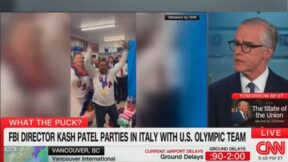
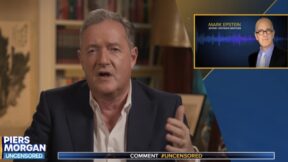
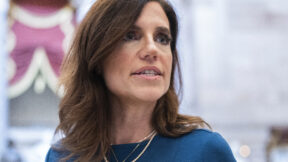

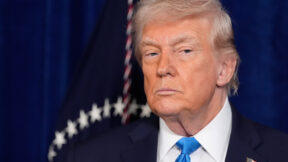

Comments
↓ Scroll down for comments ↓